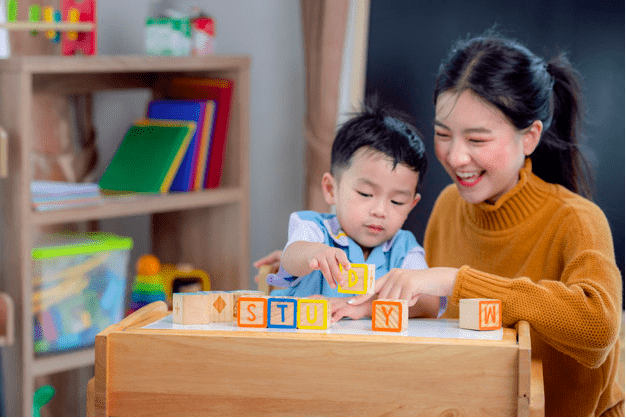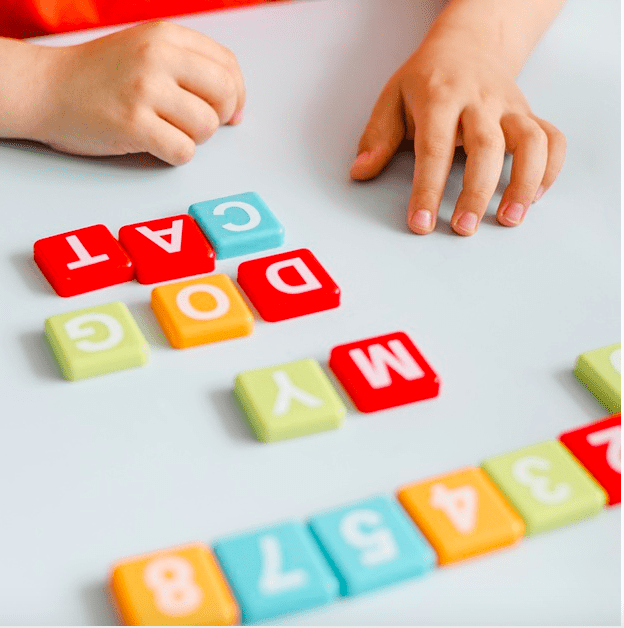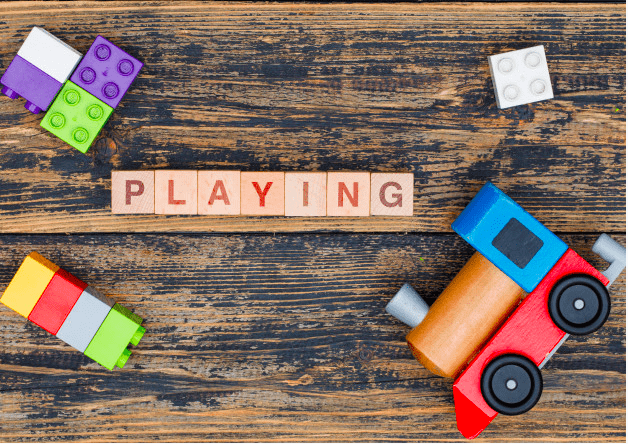Vocabulary is the method of acquiring different words to form a meaningful sentence. Vocabulary development is learning different words in a language. In infants, babbling turns into speaking as children grow; it helps produce words that fit right in the sentence making it easier to understand. Vocabulary development strengthens areas of communication such as learning, reading, talking, and writing.
Vocabulary development is crucial as children’s school achievements are predicted by their learning and reading ability. Following are some tips on how to expand your child’s vocabulary.
Reading

The most efficient way to build vocabulary is by reading. Reading does not stop with just school textbooks and bed-time stories (fictional and non-fictional) but exposing them to newspapers, billboards, labels. This allows them to learn a wide range of words and hence, should be habitual.
Learning different words will encourage them to articulate their thoughts and express their feelings more precisely. Reading helps develop the creative aspect of a child’s brain, further allowing them to think from different perspectives. Vocabulary development in childhood also aids distinct interests which will benefit them in their future, not only scholastically but also in their lives and career.
Making Conversation
It’s often said that children are like sponges, and so it is always best to immerse them in vocabulary development at an earlier stage. Now, we all know that learning begins at home and that your parents are your first teachers. Strengthening your child’s vocabulary can be effortlessly done by simply making daily conversation. Doing so accelerates word growth as they tend to process language at a rapid pace.

It’s always better to avoid oversimplifying words for them. To increase their chances of learning new words and getting familiar with the meanings of them as they have more of a receptive vocabulary rather than an expressive one.
Playing with your children regularly helps to make conversation easier, as one is opened to multiple series of events to talk about. They learn to interact, communicate, make sentences and ask questions.
Goldilocks Principle

It’s important to acknowledge that grasping and retention in children is not as advanced as adults. While teaching children new words, it is necessary to not flood them with excessive words. One must ensure that if the child is learning three new words, the child should be able to understand the context in which the word is being used. The rule of thumb is to make sure that these words are used frequently while conversing with the child, as multiple exposure is the best way to retain the newly learned words.
Play Word Games

Playing games is a fun and interactive way of learning. Introducing the child to word games such as word building, crossword puzzles, Scrabble and rhyming games can improve your child’s vocabulary tremendously while making learning new words a joyous experience. Starting a “Word of the Day” system is also another way to keep the child excited about developing their vocabulary. This can be done in many creative ways, for example, presenting the word in a small treasure box or giving it wrapped in the form of a present.
Use Descriptive Speech

Conveying your message in a more detailed manner and encouraging your child to do the same, will help your child identify and associate the words they have learned, to objects effectively. For example, instead of saying “bring me your favorite toy”, you can say “bring me your favorite toy, the one with a bright red shirt, grey pants, and a black hat”. The key here is moderation, use enough words to keep them inquisitive and not confused.
Introducing a Dictionary

The dictionary is the best place to learn new words. Buying your child a dictionary is very important. You can encourage them to use it to learn new words by giving them fun tasks. For example, learning five new words of each letter every day or asking them to refer to it every time they hear or read a new word. This allows them to develop their vocabulary and consequently, a strong command over the language.
Vocabulary development in early childhood is the building block of social and cognitive development and following the above-mentioned tips will help your children learn better, read better and speak better. Hone your child’s vocabulary by enrolling them in Sharp Minds Academy today.


